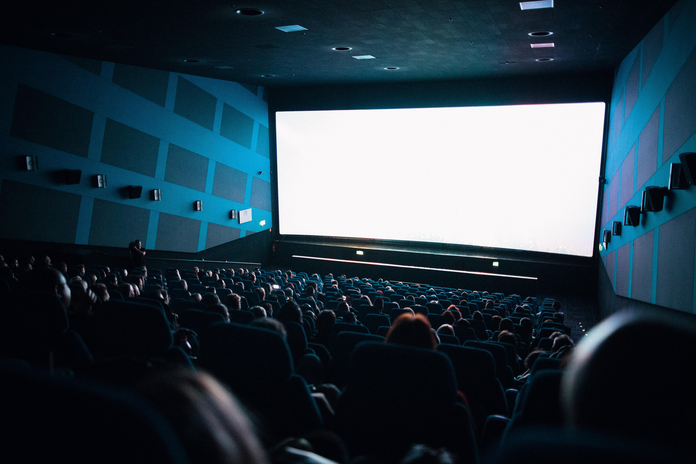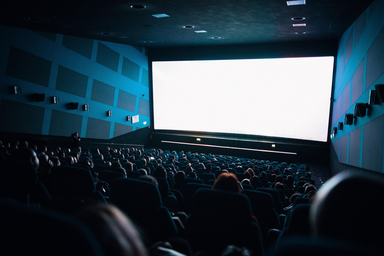*Includes spoilers!*
I have always loved the concept of magical powers and fantasy, where I can escape to a world where you can fly instead of walk, conjure spells, and have fun in a way we could only imagine. I spent this summer watching most of the Marvel movies having never watched them when I was younger. I finished them only last month, just in time for the release of Shang-Chi and the Legend of the Ten Rings (throughout this article I will just refer to it as Shang-Chi).
When I first heard about Shang-Chi, I was ecstatic but also sceptical. As someone who has hardly ever seen a Chinese lead in the western film industry, it was hard for me to have high hopes for our true representation. When there was first news that they were trying to change that, I wanted reason for it to be true. So, I purposefully didn’t watch any trailers, read up on any theories or even look up who was involved in the making of the movie. All I knew was that critics took the film well, and that’s all I knew going into Vue cinema yesterday.
Chinese Actor/Actress Representation
Firstly, the cast is incredible. I have always felt quite underrepresented in media, and although there are some fantastic Asian American actors, I’ve always wanted to see more actors and actresses that created a name for themselves in the Chinese film industry. Seeing actors and actresses such as Tony Leung, Fala Chen and Yuen Wah being cast in Shang-Chi meant a lot to me since I grew up watching them with my parents. Hong Kong is a tiny nation, and so any famous people, are pretty much known by everybody there. So, it warmed my heart seeing them being cast by Marvel, for everyone to see our talented native actors and actresses.
Struggle of Westernised Chinese People
Growing up in Britain, I, like many other Chinese diaspora have grown up struggling with their identity. Constantly reminded we aren’t from here; it can be difficult when you aren’t surrounded by people similar to yourself. I feel I’ve missed parts of my culture, which I would have learned if I grew up in Hong Kong. It’s up to me to learn it myself, and for a lot of us, we may never do. Seeing a character like Shang-Chi (who went by Shaun in America) was important to address as a symbolisation of many who feel lost with our identity. He hid his Chinese name even though it was part of him and can be part of an identity crisis when you have two names. For me, it is my middle name on my birth certificate, I never use it in fear of being made fun of, or even just not wanting to hear our names being butchered.
Avoiding Stereotypes in characters
Whenever there is a Chinese character in the media, they are either put there to protect the reputation of the organisation to say they’ve been ‘diverse’ and ‘representative’ or they are simply a character consisting of every Chinese stereotype imaginable. I see us being depicted as geeks, weird, cunning, bad drivers, raging maths skills with strict parents. Believe it or not, we are not all the same! I am not a geek, nor cunning. Maths and I have never gotten along, I’ve been told I’m a good driver and my parents are the most chilled people you’ll ever meet.
The characters in Shang-Chi do not portray these stereotypes. They have shown the two main characters – Shang-Chi and Katy – to be normal people. They have a personality outside of their ethnicity, which shows we can be funny and live normal lives. I find Katy to be a rather relatable character, where she has yet to find her purpose in life but is allowed to work that out on her own. As hard as it is to believe, not all Asian parents want us to be doctors and lawyers! Some of us may want to work in a car valet and that’s perfectly okay! Did you not see that bus-scene? I would not call that bad driving.
Xu Xialing, Shang-Chi’s sister is another character I adored. I love how they did not give her an English name, keeping her original Chinese name many second-generation Asians (including myself) keep in their back pockets. Her character completely ignored the Chinese women stereotype of us being dismissive, obedient, and quiet. Xu Xialing is an absolute bad ass, training herself to be an amazing fighter when her father refused to let her train with men. She fled from her father, where she stated to Katy – ‘if my father won’t let me into his empire, I will build my own’ which sounds cool to me! I felt this was an important character to have to show young girls they can make it on their own and also served as a subtle way of her fleeing the patriarchy. Her entire life, after Shang-Chi left her, she has been on her own, fending only for herself, making her fearless and nothing like we are normally regarded in media.
Sparks of Culture
Another thing I liked about Shang-Chi was its reference to Chinese culture. It is not a main part of the story but were subtle to show appreciation for our traditions. One tiny thing I noticed is when Shang-Chi entered Katy’s family home. Before stepping foot inside, he took his shoes off – something normal in many Asian households as part of hygiene. He also immediately addressed the people in the room. In our culture, respecting the elderly is a very big deal and so it is very important to not only acknowledge them, but to show respect for the ones who came before us. Shang-Chi was also offered food as part of good hospitality – congee – which they said in Chinese, which is a very common dish in our culture.
Katy’s grandma also mentioned the Day of the Dead. Known to us as the Qingming Festival, it meant a lot to me this important festival was mentioned as it is a particular day to remember our ancestors who passed away. On this day, it is particularly important to visit the graves of our ancestors, pray to them, make offerings, and tidy their tomb area. It was therefore a great foreshadowing to the end, where lanterns were drifted away in honour of our ancestors.
Chinese Myth References
As someone born in the year of the dragon, I have a great attachment to this mystical creature. Seeing dragons in this film gave me great pride, where dragons tend to symbolise power and strength. Shang-Chi and Xu Xialing also both wore green pendants passed down to them by their mother. It is later revealed to be part of a key (both an eye of a dragon statue) and was never stated what it is made of – but I’m going to theorise it is made out of jade, a very lucky stone as it symbolises prosperity, success and good luck in our culture. Using guardian lions (real ones in fact!) as protectors was another way Shang-Chi used our culture as influence for the movie. The traditional idea is that these lions are used to protect buildings from negative spirits and any sort of harm. Seeing both the dragon as the main source of heart in Ta Lo and guardian lions was a great way to represent our myths.
Language
Throughout the movie, non-Mandarin speakers had to turn to the subtitles when watching the movie. Although I speak Cantonese, and can only make out certain phrases in Mandarin when being said, I was particularly happy they included Chinese in the film. I felt it was a good addition to the film, as well as using it as a way to show the differences between the next generation of Chinese people who grew up in a westernised country. It realistically portrayed the struggles of many Chinese diaspora, where Katy needed a few attempts to say Shaun’s Chinese name. Jon Jon also referred to a common acronym used, ABC which stands for American-born Chinese (here it is BBC – British-born Chinese).
Overall, I loved the movie. A few more honourable mentions would be the jaw-dropping fight scenes and the character Wong, who I loved in Dr Strange. But what I loved most about the movie is the references to my culture and our traditions. How they played it so subtle, while wonderfully showing the differences in our culture to western cultures. I liked how they hinted at subtle problems such as the way our diaspora is treated as well as feel in the struggling of our identity. Especially with the pandemic, it has been extremely hard to be Chinese and feel safe. Most importantly, the movie showed an appreciation of our people, which I couldn’t be more happy about!


